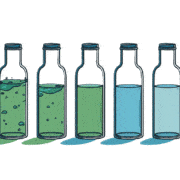The Scandal Effect: Removing the taint of corporate ethical lapses
 Imagine an executive at a company leaves their job in January, six months before the company becomes embroiled in an ethical scandal. The executive now has the taint of a botched job attributed to him/her and, like the smelly car from Seinfeld, it is hard to wash off and seems to follow them everywhere.
Imagine an executive at a company leaves their job in January, six months before the company becomes embroiled in an ethical scandal. The executive now has the taint of a botched job attributed to him/her and, like the smelly car from Seinfeld, it is hard to wash off and seems to follow them everywhere.
A recent article in Harvard Business Review illuminated this phenomenon, shows how much of a long term impact scandal can have on people. The results were shocking (though not so much odiferous):
For the purposes of our study, we defined “scandal firms” as companies that had been cited in the databases of the U.S. Government Accountability Office (GAO) or the U.S. Securities and Exchange Commission’s Accounting and Auditing Enforcement Releases (AAER) for misstating earnings.
Our research shows that executives with scandal-tainted companies on their résumés pay a penalty on the job market, even if they clearly had nothing to do with the trouble. Overall, these executives are paid nearly 4% less than their peers. Given that initial compensation in a job strongly affects future compensation, the difference can become truly significant over a career.
All is not created equal when it comes to the type of companies that, when there is scandal, have a longer lasting imprint on its departing team members. Companies outside the controversial segments (alcohol, tobacco, firearms, etc.) who become connected to dishonorable activities tend to taint their former employees in an even deeper way, mostly because people in controversial job categories are already tainted with the negative impact of the company they work for:
Noncontroversial companies don’t incur organizational stigma merely because of missteps or failure—there must be a sense that they actively engaged in wrongdoing, transgressing important norms and values of their industry.
With the sense that somehow these executives are complicit in scandal, it is helpful to identify the biases that influence the decisions of Boards who seek to hire such candidates. “[They] often use cognitive shortcuts, heuristics, and stereotypes—consciously or unconsciously—to assess candidates. Negative information and stereotypes have disproportionate influence,” the article states.
There are a couple of behavioral tendencies that may contribute to the long-term personal impact of such scandals. Zero risk bias means that people look to take the least risky course of action- a concept that helps explains how people connect scandal to the most senior people at an organization and why those may be tainted despite their personal ethics and involvement in the scandal.
If a scandal occurs at the last company at which an executive worked, another tendency called recency bias may also come into play. People tend to weigh the latest information most heavily, thereby keeping scandal top of mind even if there was no involvement by the person in the interview seat.
In addition, blind spot bias can play a role as people tend not to recognize their own bias when making decisions. So hiring managers may not even realize that they are judging individuals through the lens of corporate scandal even though the job candidate had no role in the error.
Many other factors, such as industry culture, gender, seniority, and education, all play a role in how corporate scandal can contaminate a candidate’s viability. Yet, perhaps the easiest way to avoid corporate scandal is to obviate the misconduct in the first place. Leadership plays a large role in making this happen- or in this case, to help the company steer clear of ethical failures.
At the end of the smelly car episode in Seinfeld, Jerry winds up abandoning the vehicle. Unfortunately for leaders tainted by ethical scandal, leaving a bad reputation on the side of the road is not as easy. With ethical leadership and good management, the stigma of scandal can be shed, survived and, like the car, can eventually be relegated to the rearview mirror.
Further Reading:
- Biases and decision making (blog)
- Personality and Personnel (research page)
- Interview with Linda Trevino (blog)









